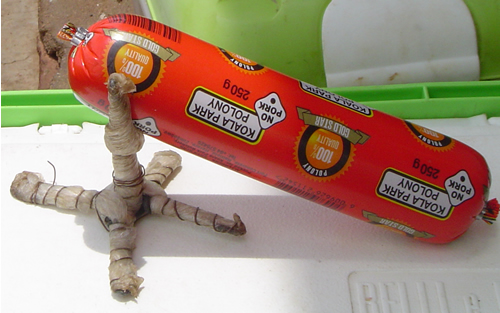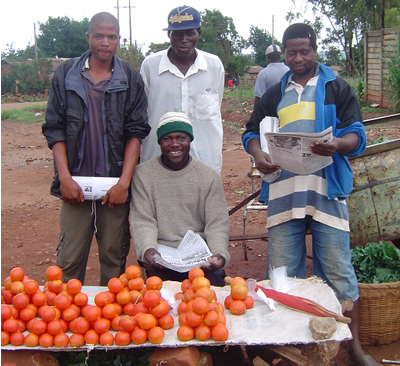In an effort to help Zimbabwean activists become more inspired and creative in their work Kubatana.net organised a morning of screenings and discussions of 10 Tactics for Turning Information into Action and Favela Rising.
We published an invitation to apply to attend the workshop in our email newsletter and asked respondents to write a short letter of motivation detailing what they hoped to get out of the session.
We picked a small group of activists (ten people) from the letters we received, as we felt this would give everyone involved an opportunity to participate.
The morning began with a screening of 10 Tactics. We encouraged the activists to take notes during the film for discussion at the end. Many of the activists related that they were using some of the tactics already, as in the case of the Research and Advocacy Unit which produced a documentary, Hear Us/Tinzweiwo, telling the stories of women who experienced violence and rape during the 2008 elections
Major issues that were raised in using the 10 Tactics included verifying information, self-censorship in reporting information and how to mobilise people.
Many of the 10 Tactics require information from communities to organisations, and there was concern about how the information being used could be verified, and how this could be done in a timely manner. The group concluded that if there was coherence regarding a certain piece of information then it would most likely be true.
With regard to self-censorship, the group discussed how this had taken root within Zimbabwe and was affecting civil society, with some organisations refusing to publish what they considered sensitive or inflammatory information.
The first tactic, which is to mobilise people around a certain issue, was felt by the group to be at the heart of the difficulties civil organisations in Zimbabwe are facing. Several solutions such as involving community members in programming and supporting community based initiatives were suggested.
The second film we screened was Favela Rising. Following on from the earlier discussion we decided to focus the group conversation around a quotation from Anderson Sa: “I am a warrior of the people.”
This was effective in getting the group to consider their, and their organisations role in effecting change in the communities in which they work. The group considered how the strategies utilised by Afro Reggae could be used in the Zimbabwean context. There was also some debate regarding the efficacy of social movements versus non-governmental organisations. The group noted that NGOs in Zimbabwe have become highly professionalised, leaving little room for real activism.
Our goal in hosting this screening to was inspire the activists to approach their work in different and perhaps more effective ways. During the workshop we stressed the importance of giving solutions rather than listing the problems, which are already well documented.
At the end of the morning we asked the activists to fill a feedback form. In answer to the question Briefly describe how you will use what you have learned to improve the activities of your organisation the following are some of the responses:
- To stand as an activist wherever I go.
- I will help other activists on how best they can turn information into activism.
- The people in my community are suspicious of elections. I want their viewpoint to be heard.
- Facilitate members of my organisation to be able to carry out locally based and formulated programmes.











